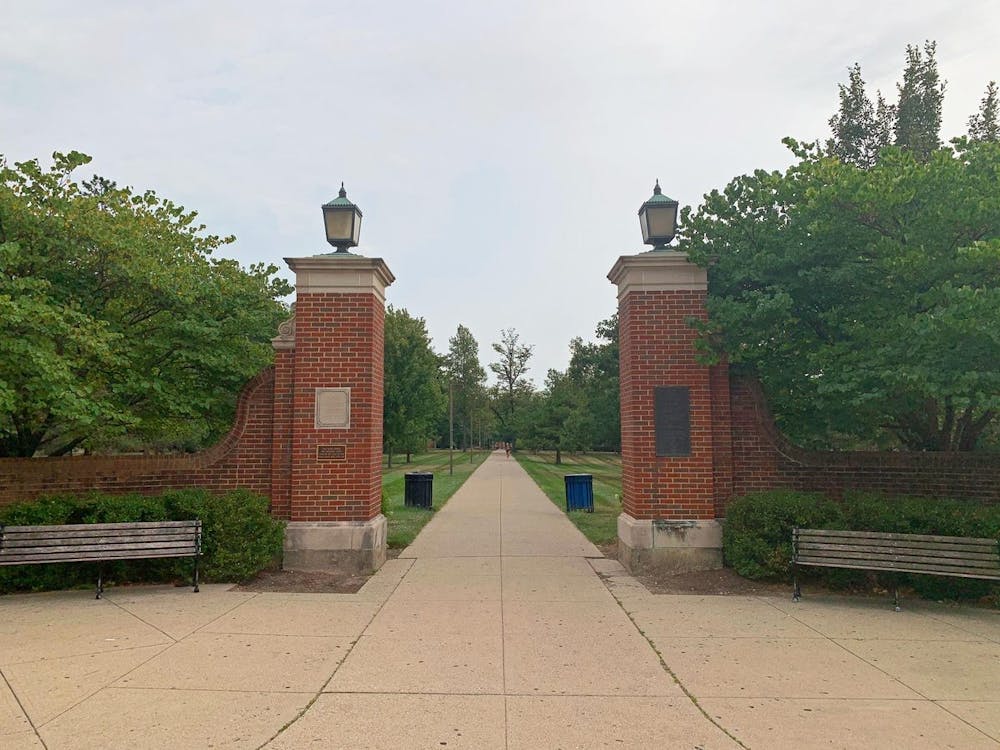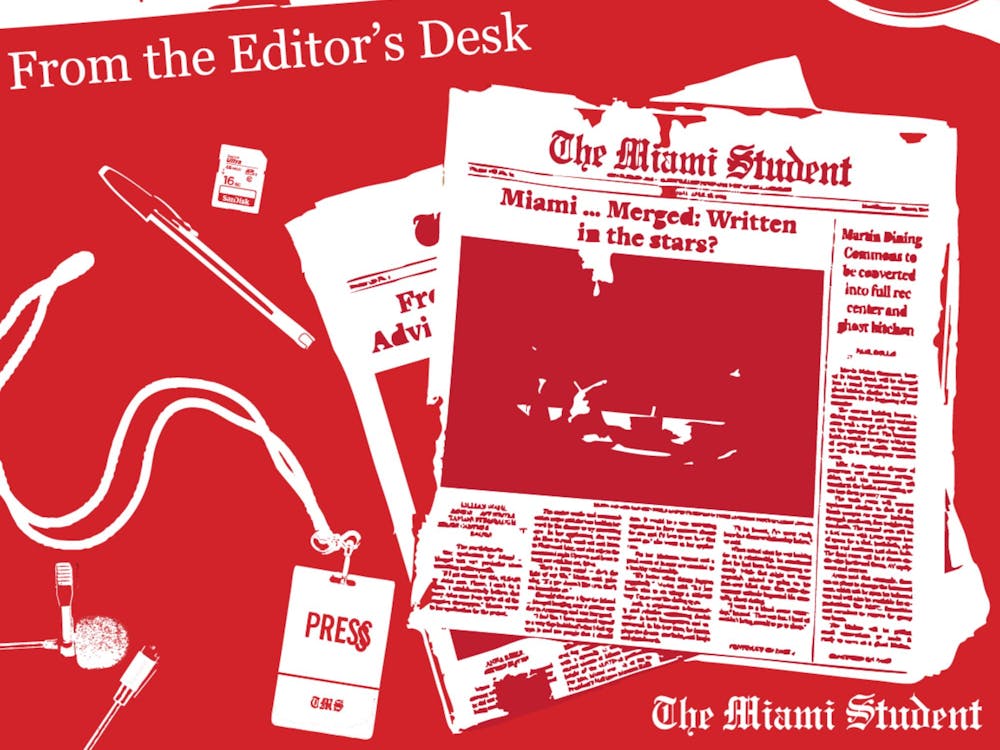In a faculty and staff town hall, Miami University Provost Jason Osborne said the university’s reputation and long-term health along with the health and safety of students played into its decision to continue with a phased return to campus.
“Revenue was never the driving force behind any of these decisions,” Osborne said of claims that the university decided to reopen solely due to fear of a $90 million economic fallout.
According to the university’s “science team” and epidemiologists tasked with looking at the university’s COVID-19 data, there is currently a 3-4% prevalence of the virus in Oxford’s nonpositive population, Osborne said.
This means that out of everyone in Oxford who has not yet tested positive for the coronavirus, between 3 and 4% of those people currently have the disease.
Osborne said that according to the scientists, Miami’s positivity rate is currently trending downward. He also attributed a number of recent cases to Miami’s Greek community, specifically fraternities.
Osborne pointed out that if Miami had chosen to stay fully remote, it would be the only university in Ohio to do so.
“What we’d be saying to our students is that we can’t do this when all our neighboring universities can,” he said.
Osborne cited data suggesting that, nationally, on-campus students experience less spread of COVID-19 than their off-campus counterparts as another reason for the university’s decision to bring back residential students.
Vice President for Enrollment Management and Student Success Brent Shock said more than 2,000 students have elected to continue taking a fully remote course load for the entirety of the semester.
Osborne also said that students need to participate in surveillance and wide-net testing.
“If you are selected for the surveillance testing, you need to do it,” Osborne said. “If not, you can’t stay on campus.”
Residence hall move-in will begin Monday, Sept. 14. All students moving in will be required to participate in COVID-19 testing upon arrival. The students will receive their results in 12-18 hours.
Enjoy what you're reading?
Signup for our newsletter
If a student tests positive, they will be required to immediately quarantine in a location separate from their designated dorm.
Jayne Brownell, vice president for student affairs, said during the meeting that if a student tests positive after participating in an in-person class, the whole class will likely not have to quarantine.
The student will be interviewed by the Butler County General Health District contact tracers about who they've come in close contact with, and those people will need to undergo quarantine protocols.
If a student tests positive for the coronavirus, Brownell said the university will reach out to their professors on their behalf. Miami will let the professors know the student may be absent, but the university will not explicitly say that the student has COVID-19 in order to comply with federal privacy laws.
At the end of the town hall, Osborne looked to the university’s future.
“It’s going to be an interesting journey,” Osborne said. “We’ll see what comes. Thanks for going along with us.”




